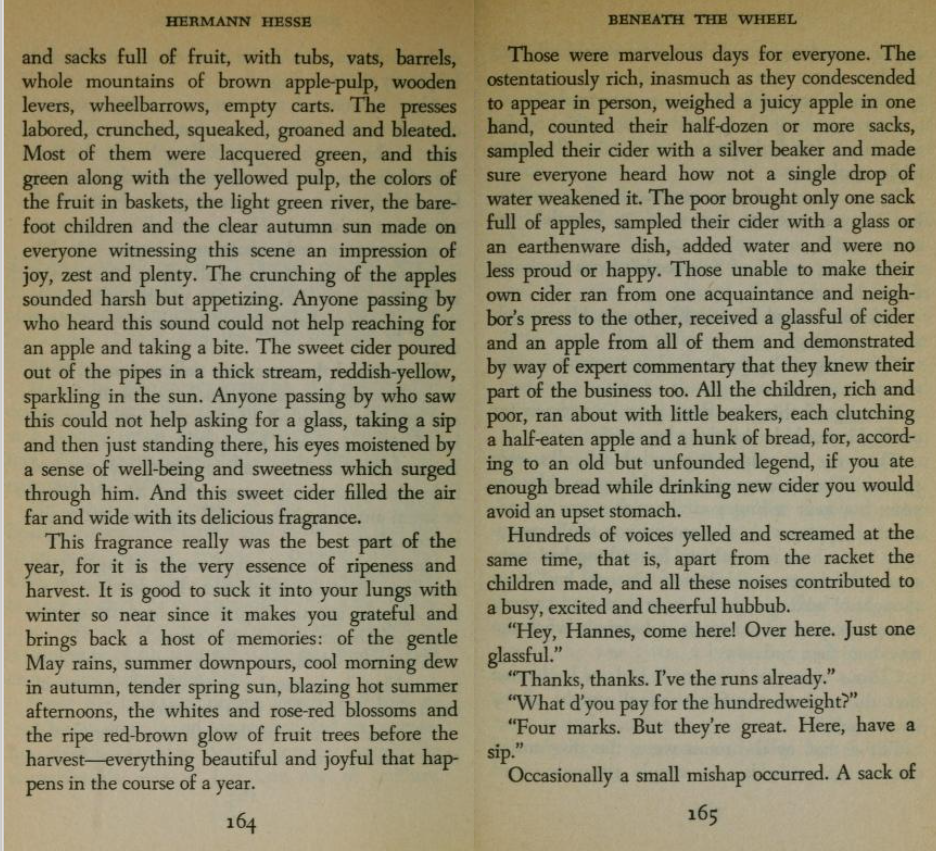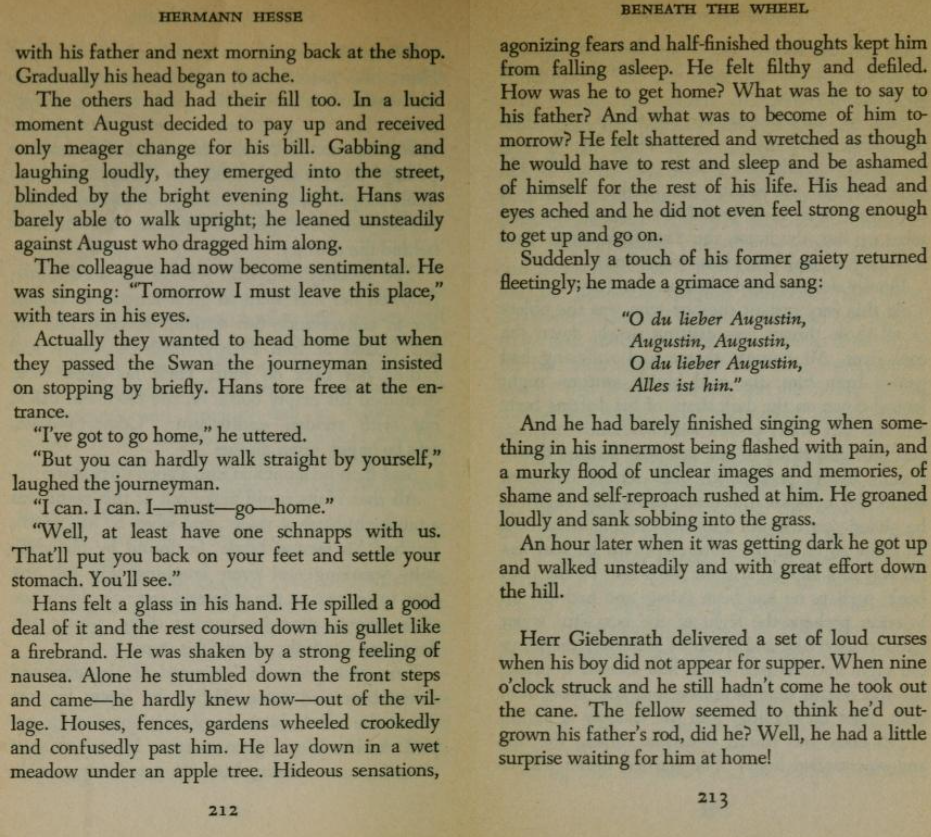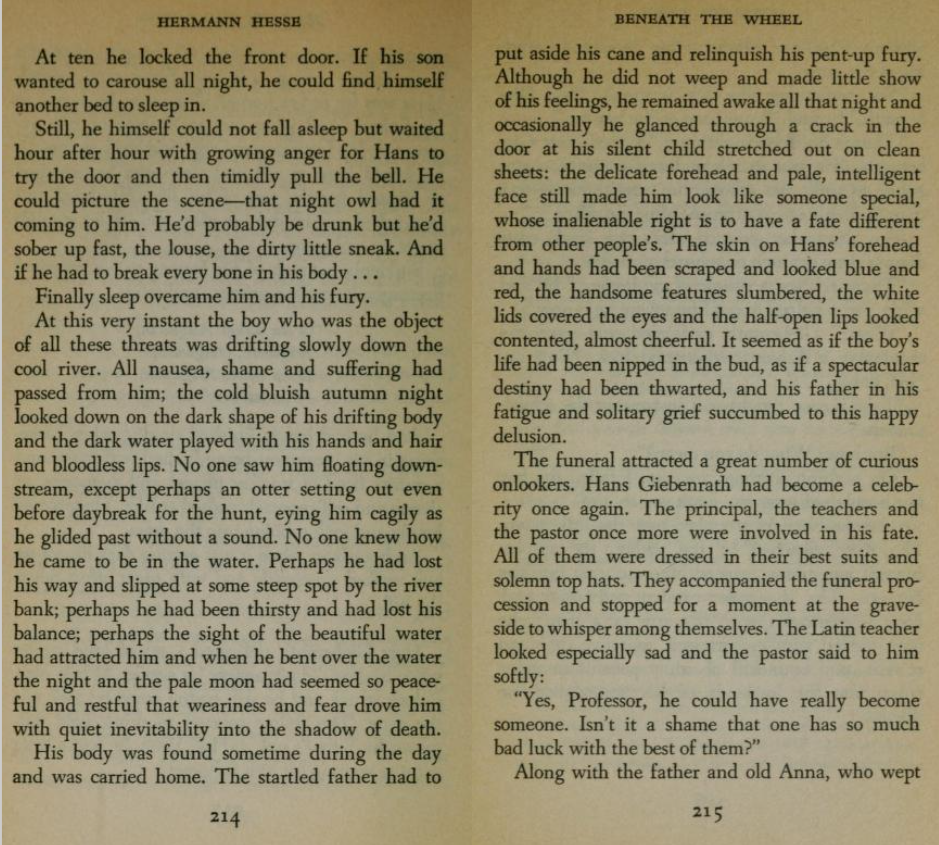


Throughout my life I have wrestled, meditated upon a book, many books, yet this one in particular. Hermann Hesse’s ‘Beneath the Wheel’, a story of failure mesmerized me as a young man, etching itself into my journey. I am not sure my interpretations are accurate for it is decades since it was read. Befriended and enamored with a charismatic poet, a student fails in his studies, becoming an outcast. He is, forced, within his perceptions, to return to the life of a laborer, to return to the people of his upbringing. Once perceived as promising, he is now received as just another trying to make it in life. Idealism lost, education, artistic expression buried, he straps on the clothes of a worker, attempting to accept toiling in the flesh. He fails once again, drowning when returning home from a drinking binge with his new brothers in arms. The scene of the apples, cider making, drunkenness, revelry, people upon people, coalescing with the image of the apple and original sin, often plays within my meditations, assisting me in a deep caring—fighting against the deep dependency to love humanity while hating people. Finally, a video providing insight into the song Hesse points to.
Augustin loses his girlfriend, his money, his clothes, all Vienna’s been taken away by the plague, but Augustin keeps singing for the Vienese. They even have to tell him to lie down in this grave- he didn’t stay in it the first time! This simple song is said to date back to 1679 in Vienna, Austria – Marx Augustin was a cheery, popular balladeer and bag-piper of the time, reviving people’s spirits in that dark year of another outbreak of the Pest, the Black Death, He was also an accomplished drinker. One night, he was found lying in the gutter, drunk, but mistaken for dead, a Schnapsleiche, ‘a schnaps corpse’, someone so dead drunk they’re taken for dead.And he was actually taken for dead! The Siechknechte, ‘sick-menial-workers’, the convicts assigned to collect the plague corpses, found him, threw him and his presumably infected bagpipe onto the cart with all the rest, and hauled him off to the mass grave. Bagpipes were at that time still common across Europe and not yet identified with Scotland. They pitched him in with the other bodies, and next morning he awoke among the bodies, and couldn’t climb out of the pit- so he set to playing his bagpipe, deciding he’d die the way he lived. Instead, people heard him and pulled him out.
O, du lieber Augustin, Augustin, Augustin, (O, you dear, dear Augustin, Augustin, Augustin,)
O, du lieber Augustin, alles ist hin. (O, you dear, dear Augustin, I just can’t win!)
Geld ist weg, Mäd’l ist weg, (Money’s gone, gal is gone,)
Alles hin, Augustin. (I just can’t win, Augustin!)

